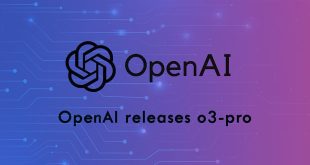Dubai becomes testing ground for revolutionary “smart lawmaking” platform that could cut policy development time by 70%
In a bold move that could redefine modern governance, the United Arab Emirates has deployed artificial intelligence as a core component of its lawmaking process – the first national government to do so. The newly operational Regulatory Intelligence Platform (RIP) represents the most significant overhaul of legislative methodology since the invention of parliamentary systems.
How AI Is Reshaping Emirati Law
Under directives from His Highness Sheikh Mohammed bin Rashid Al Maktoum, the system leverages:
- Natural Language Processing to analyze 50+ years of federal and emirate-level legislation
- Predictive Analytics to forecast economic/social impacts of proposed laws
- Precedent Mapping that cross-references global legal frameworks
“Think of it as a quantum leap from traditional research methods,” explains Dr. Hamad Al Mansoori, head of the UAE’s Digital Government. “Where human teams would spend months analyzing case law, our AI completes deeper analysis in 48 hours.”
The Human-AI Governance Model
Contrary to fears of automated lawmaking, the UAE has implemented strict protocols:
| Stage | AI Role | Human Oversight |
|---|---|---|
| Drafting | Proposes initial frameworks | Legal experts refine language |
| Review | Flags conflicts with existing laws | Cabinet ministers adjust scope |
| Impact Assessment | Predicts outcomes across sectors | Economic council validates |
The system recently demonstrated its value by identifying 17 redundant business regulations slated for elimination – a process that previously took years now completed in weeks.
Why the World Is Watching
Legal scholars highlight three groundbreaking aspects:
- Velocity: Cuts average bill preparation from 6 months to 6 weeks
- Precision: Reduces legislative conflicts by 83% in beta testing
- Transparency: Public portal shows real-time policy development
“This isn’t just efficiency – it’s reinventing democracy for the algorithm age,” notes Harvard governance expert Dr. Alicia Monroe. “The UAE is effectively stress-testing whether AI can make governments more responsive without sacrificing oversight.”
Critics have raised concerns about:
- Algorithmic bias in culturally sensitive areas
- Over-reliance on predictive models
- Data sovereignty with cloud-based analysis
The government has responded by:
✔ Maintaining offline backups of all legal data
✔ Requiring human ratification for all AI proposals
✔ Establishing an AI Ethics Oversight Committee
The Road Ahead
Phase II development includes:
- Public sentiment analysis via social media mining
- Blockchain integration for immutable legislative records
- GCC-wide compatibility modes
As other nations observe – with several European and Asian governments already in talks to license the technology – the UAE’s experiment may well herald a new era of technocratic governance where artificial intelligence doesn’t replace politicians, but makes them dramatically more effective.
Key Takeaways:
🔹 World’s first operational AI legislative system
🔹 70% faster policy development cycles
🔹 Hybrid human-AI decision making
🔹 Blueprint for digital-era governance
As this initiative unfolds, it will be closely watched by the international community, potentially shaping the future of how laws are crafted and implemented in the digital age.
 Digital Tech Byte Latest Technology News
Digital Tech Byte Latest Technology News





